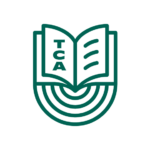What is it
The role of the life coach is to provide advice and guidance to clients who are looking to get more from various aspects in their lives. While most clients that seek out a life coach do so for guidance and advice on their professional lives and career trajectory, others do so in the hope of gaining a greater level of insight into their own personal lives and the areas they can change for the better. To this end, life coaching is about assisting the client in identifying, setting and achieving their goals. Life coaches teach clients to take control of their lives and to replace wishing and waiting with doing.
What does it involve
Life Coaching courses teach participants that it is a diffuse profession that deals with a wide range of areas such as relationships, career planning, stress management, motivation, parenting, creativity and finance. In order to provide quality guidance in any area, however, life coaches must learn how to establish a workable strategy for their clients and implement it within a given timeframe.
For a strategy to be effective, it must be personalised. For this reason it is important that life coaches get to know their clients in order to understand where the person is at, psychologically, physically, financially and interpersonally. It is only after obtaining a clearer picture of the client s present can both client and life coach identify elements in the client s past that may be hindering growth in any particular area, and plan strategies for the client s future progress. This is also vital in order to develop a bond of trust. Having the awareness to know what kinds of questions to ask a client (and how to phrase them), or when to simply sit back and listen, is essential if you are to provide your clients with the kind of advice they need in order to make the life choices that will be of greatest benefit to them.
In order to develop effective Life Coaching skills, most programmes will therefore offer learners training in related areas such as deep listening skills, meditation, counselling and psychology. While obtaining techniques that allow you to probe for personal and psychological insights from clients is essential, so too is developing your communication and presentation skills. Modules such as Coaching Methods and Skills, Presentation Skills, and Objectives and Planning will bring your abilities to organise, prioritise and communicate up to spec.
Life Couching programmes are not restricted to classroom-based learning either as there are a range of distance-learning options available to learners, which give them the freedom to study at their own pace and from the comfort of their own homes. These are available at certificate, diploma and advanced diploma levels.
Why do it
The role of life coaches is to effect change for the better. Because of this, a life coaching profession can be an extremely rewarding one. It is also an area of growing popularity as the demands of modern living in which people struggle to improve their professional, family and social situations have led to an ever-increasing number of advice seekers who are intent on learning how to meet those demands.
What comes next
Many companies now enlist the services of life coaches in order to get the best from their employees. Because life-coaching services can also be delivered online, there are greater self-employment opportunities for qualified life coaches as they can choose to work remotely from home.
At a glance
Distance-learning Life Coaching courses generally give students up to three years to complete their courses, thereby affording them the chance to study at their own pace. Certificate courses run for 14 weeks at a cost of 500; Diploma courses last for 24 weeks and cost 820; and Advanced Diploma courses in Life Coaching run for around 30 weeks at a cost of approximately 1000.















